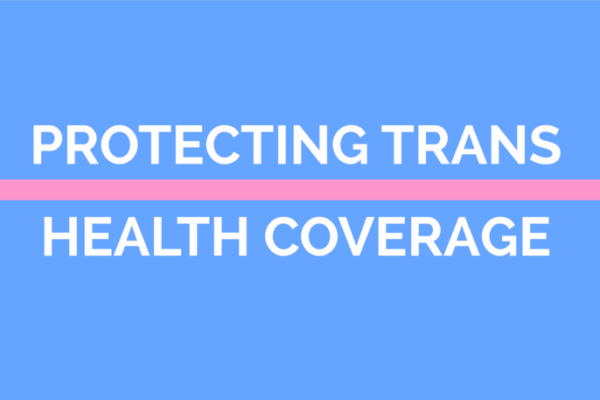This blog was co-written with Gender Justice, a Minnesota-based nonprofit legal and policy advocacy organization devoted to addressing the causes and consequences of gender inequality. Their mission is broader than women's rights, standing alone. They fight any discrimination based on sex, gender, sexual orientation, or gender identity.
Last week, Gender Justice was at the U.S. District Court in Minnesota to hear arguments in the case Brittany Tovar and Reid Olson v. Essentia Health and HealthPartners. The case was yet another fight against healthcare discrimination for transgender patients in Minnesota.
A parent shouldn't have to worry about whether their child is going to get quality, comprehensive medical care when they need it. But when Brittany Tovar was trying to get her son, Reid Olson, transition-related care back in 2014, Essentia and HealthPartners denied him coverage. They could not afford the medical costs out-of-pocket, so Reid did not get the treatment he needed during puberty.
In a statement issued last week, Brittany Tovar shared her disappointment in Essentia and HealthPartners. “When we needed it most, my employer and healthcare insurance provider did not care for my child’s health. Where is the justice in that?”
Section 1557 of the Affordable Care Act (ACA) prohibits sex discrimination in healthcare. And even though Minnesota law prohibits health insurance discrimination based on sexual orientation and gender identity, transgender patients often have to fight for their rights in healthcare settings.
In 2015 when Brittany Tovar approached Gender Justice with her son’s case of healthcare discrimination, ACLU of Minnesota was also filing a lawsuit on behalf of Evan Thomas and OutFront Minnesota. Evan was on Medical Assistance (MA) and had started hormone therapy, but he was denied coverage for transition-related surgery. In 2016 Evan won his case and a state judge ruled that MA must provide coverage for transition-related surgical procedures. After the case announcement, Evan said, “The judge's ruling is a forceful statement that transgender people deserve equal treatment under the law.”
But instead of moving our laws forward and ensuring greater protections and access for transgender patients like Reid and Evan, President Trump’s administration is working to roll back the few rights transgender patients have secured in Minnesota and across the country.
Earlier this year, the Department of Health and Human Services (HHS) announced a proposed “conscience” rule that would require Medicare and Medicaid providers to implement standards and procedures to preserve their employees’ religious and moral beliefs. The current administration wants to give healthcare providers license to discriminate—further pushing quality healthcare out of reach for LGBT patients, particularly transgender patients, whose rights are already under attack. The proposed rule could also open the gates for healthcare providers to refuse reproductive healthcare and deny coverage to vulnerable communities more broadly.
Minnesota has stronger state laws protecting transgender patients compared to other states—but transgender patients still struggle to navigate the healthcare system and get comprehensive, respectful, and competent care.
And while Brittany, Reid, and Evan have shown tremendous strength in fighting for their rights, many transgender patients continue to fall through the cracks of our healthcare system. We can (and will) continue to fight for the rights of transgender patients in Minnesota courts, but we also need to fight against national anti-LGBTQ policies and legislation that compromise healthcare coverage for transgender people across the country. We are working together towards a future where all Minnesotans have access to comprehensive, quality healthcare.
HHS closed their public comment section on the HHS proposed rule on Tuesday, and reportedly received 72,000 public comments. Both Gender Justice and the ACLU of Minnesota submitted public comments to HHS arguing against the policy.
- Read ACLU of Minnesota’s HHS public comment and learn more about OutFront v. Piper.
- Read Gender Justice’s HHS public comment and learn more about Brittany Tovar and Reid Olson v. Essentia Health and HealthPartners.



